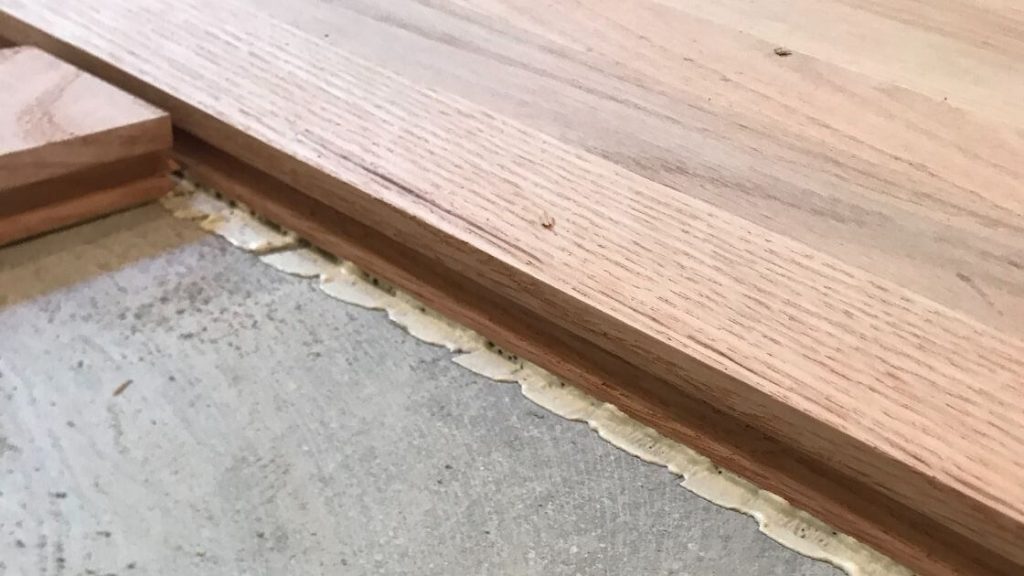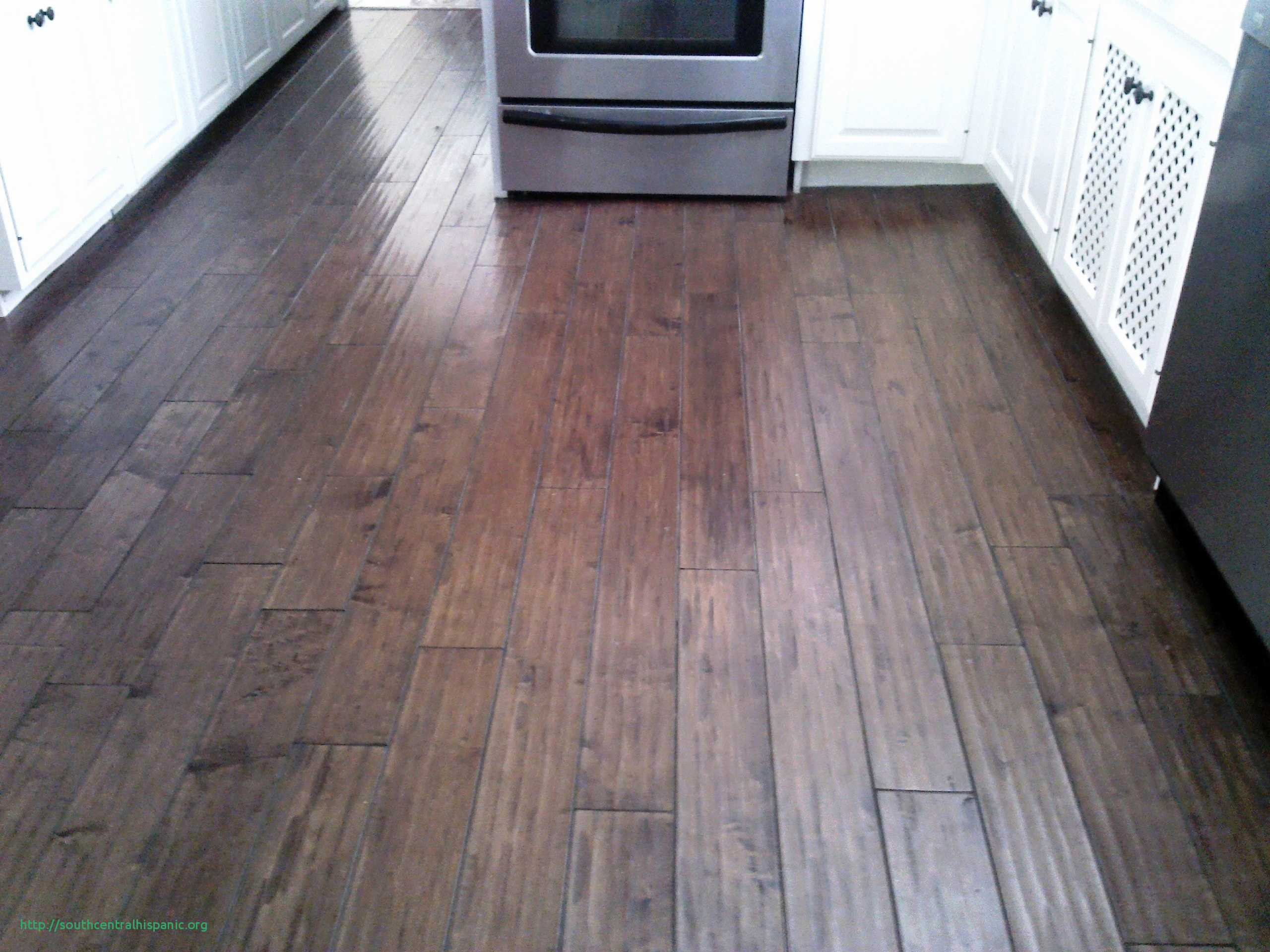Imagine stepping into your home, feeling the warmth and comfort of real wood under your feet. But what if your floor is concrete? Is it a dream that can’t be achieved? Fear not, because the answer is a resounding yes! You can absolutely put hardwood flooring over concrete, and it’s a project that can transform your home in ways you never imagined.

Image: mromavolley.com
Putting hardwood flooring over concrete isn’t just a trend; it’s a smart and elegant solution for many homeowners. Whether you’re embarking on a renovation or adding a new layer of beauty to your existing space, this guide will take you on a journey to understand the process, its benefits, and all the considerations involved.
The Why and How of Hardwood Flooring Over Concrete
The allure of hardwood flooring lies in its timeless beauty, durability, and ability to elevate any space. But when it comes to concrete, there are some crucial factors to consider. Concrete is a solid, unyielding surface, unlike the traditional wooden subfloors. That’s where preparation and understanding come into play.
Understanding the Challenges:
- Moisture: Concrete is naturally porous, which means it can absorb moisture from the ground or the air. This moisture can lead to warping, buckling, and even rotting of hardwood flooring.
- Unevenness: Concrete surfaces aren’t always perfectly smooth and level. Variations in the surface can cause your hardwood floor to feel uneven and even create squeaking noises.
Solutions to Overcome the Challenges:
- Moisture Barrier: The first and most essential step is to create a moisture barrier between the concrete and your hardwood floor. This barrier prevents moisture from migrating up and affecting the wood. Options include:
- Polyethylene Sheeting: This is a cost-effective solution, often used for building foundations and basements.
- Vapor Retarder: Specialized paints or coatings with low permeability are designed to block moisture vapor.
- Leveling Compound: To address uneven surfaces, a leveling compound can be used. This self-leveling material creates a smooth, even surface ready for installation.
Different Installation Methods for Hardwood Flooring Over Concrete:
Floating Floor Installation: This is a popular choice for concrete floors. The hardwood planks are fitted together using a tongue-and-groove system but are not attached to the concrete. They essentially “float” on a moisture barrier and a layer of underlayment.
- Benefits: Quick and simple installation, allows for expansion and contraction of the wood due to temperature changes.
- Drawbacks: Not as durable as glued-down installation, requires a more substantial underlayment for soundproofing.
Glued-Down Installation: For a more permanent and durable bond, hardwoods are glued directly to the concrete slab.
- Benefits: Creates a very strong and stable floor, ideal for high-traffic areas.
- Drawbacks: Requires a more precise and meticulous installation process, not as forgiving for uneven surfaces.
Nail-Down Installation: In this method, planks are nailed directly to a plywood subfloor laid over the concrete.
- Benefits: Provides a traditional, secure installation, suitable for high traffic and heavy furniture.
- Drawbacks: Requires more space (around 3/4 inch) for the plywood subfloor, may not be suitable for all concrete slabs.
Choosing the Right Hardwood for Your Concrete Floor
Several factors influence the best hardwood choice for your concrete floor.
Wood Species:
- Hardwoods: Dense hardwoods like oak, maple, and hickory are excellent choices for concrete floors due to their durability.
- Softwoods: Softwoods, such as pine and fir, are generally softer and more prone to scratches and dents, making them less suitable for high-traffic areas.
Wood Finish:
- Engineered Hardwood: Engineered hardwood has a plywood core with a wood veneer on top. It is more stable and resistant to moisture issues than solid hardwood, making it a popular choice for concrete floors.
- Solid Hardwood: Solid hardwood is a classic choice, but it requires a more experienced installer and careful attention to moisture control.

Image: www.rocktherm.com
Expert Insights: Tips for Success
Pre-Installation Planning:
- Moisture Testing: Before any installation begins, a certified inspector should perform a moisture test on your concrete slab.
- Consult Professionals: Ensure you consult with a flooring specialist who has experience with concrete installations.
Installation Tips:
- Acclimate the Wood: Allow your hardwood to acclimate to the room’s temperature and humidity for several days before the installation. This helps prevent warping and shrinking.
- Proper Tools and Equipment: Use high-quality tools and equipment to ensure a smooth and professional finish.
Can You Put Hardwood Flooring Over Concrete
Unlocking the Potential of Your Home
Putting hardwood flooring over concrete, done right, isn’t just about covering a surface; it’s about elevating your home’s aesthetic and value. From the warmth underfoot to the enduring beauty that lasts for years, you invest in more than just flooring – you invest in a comfortable, stylish, and inviting atmosphere.
Don’t just dream about it – make it a reality! Take the time to learn, plan, and execute with confidence. You’ll be rewarded with a floor that’s not only beautiful but also a testament to your good taste and understanding of the possibilities within your own home.






